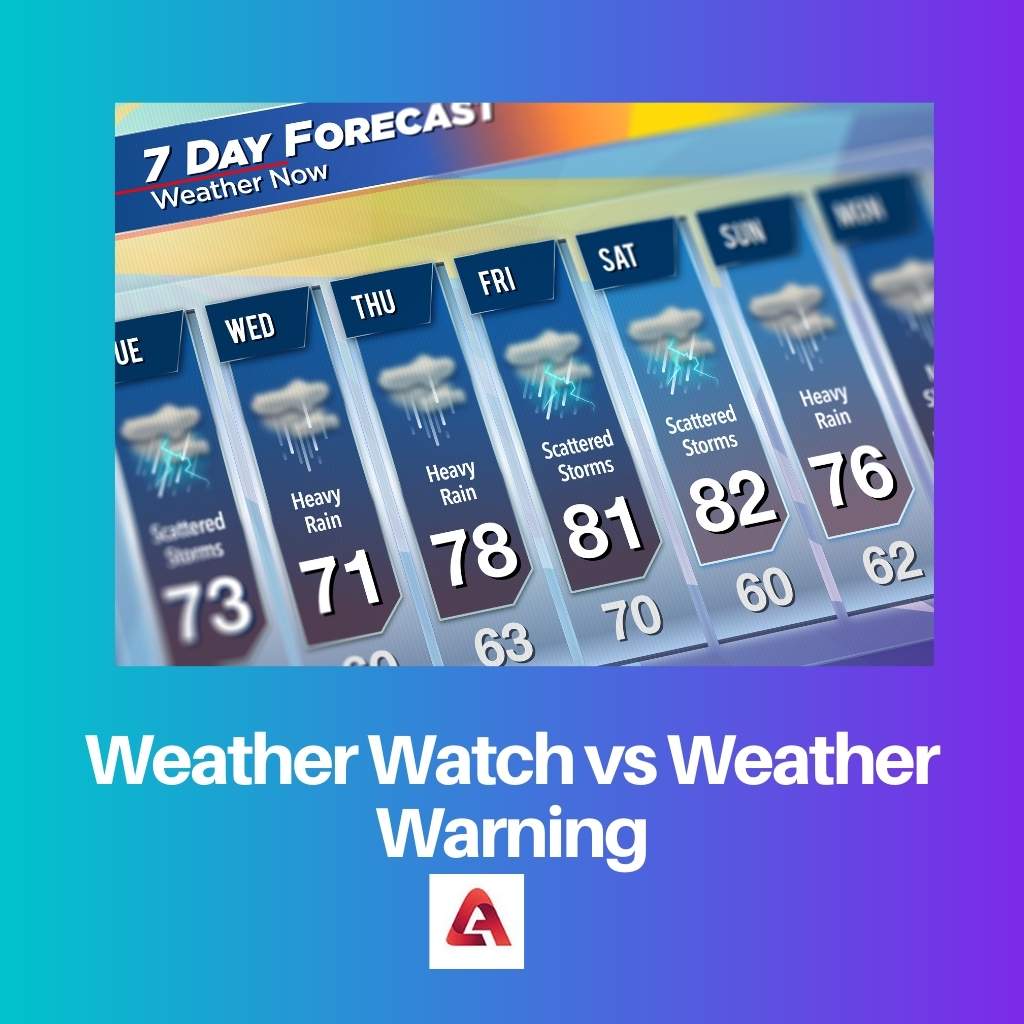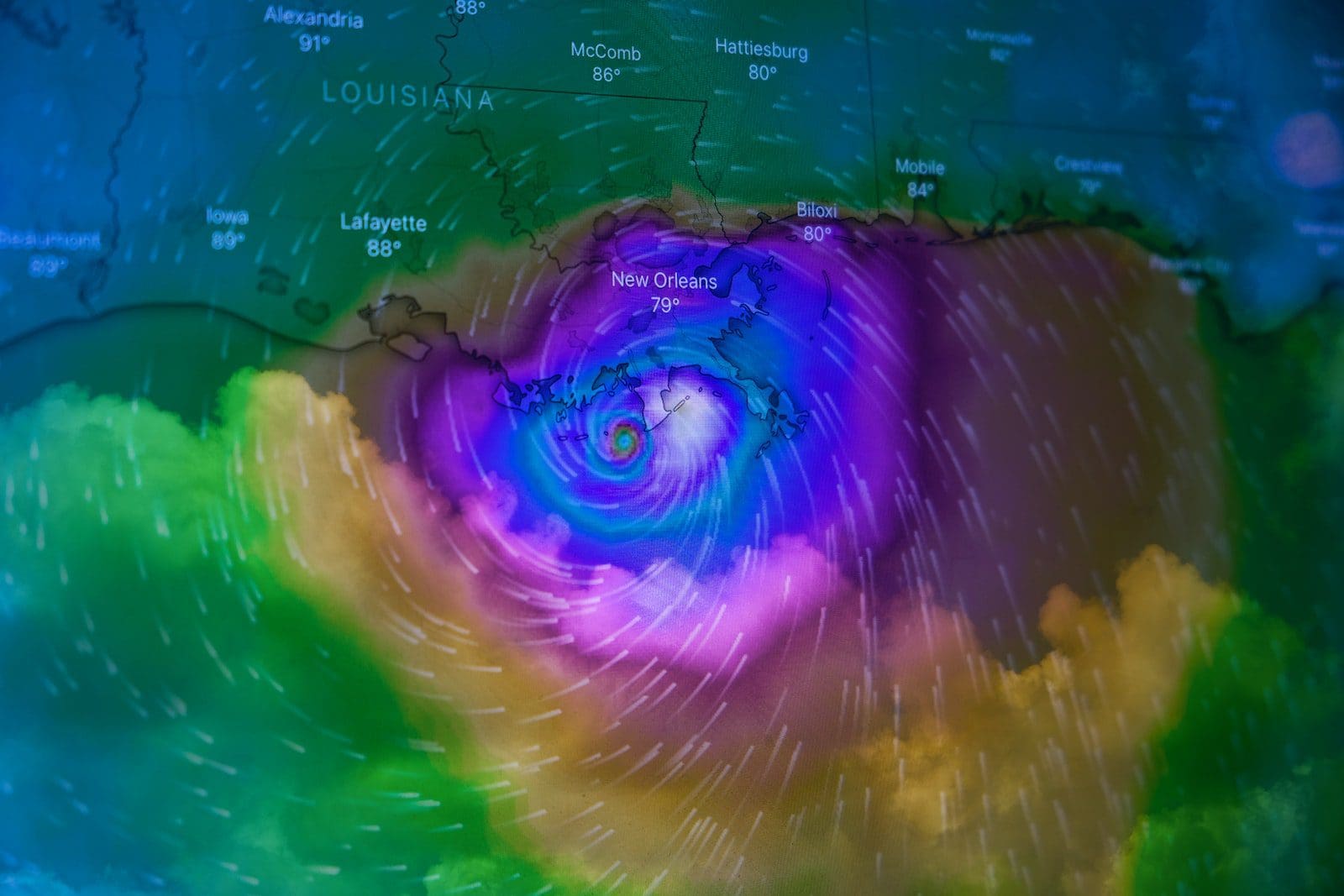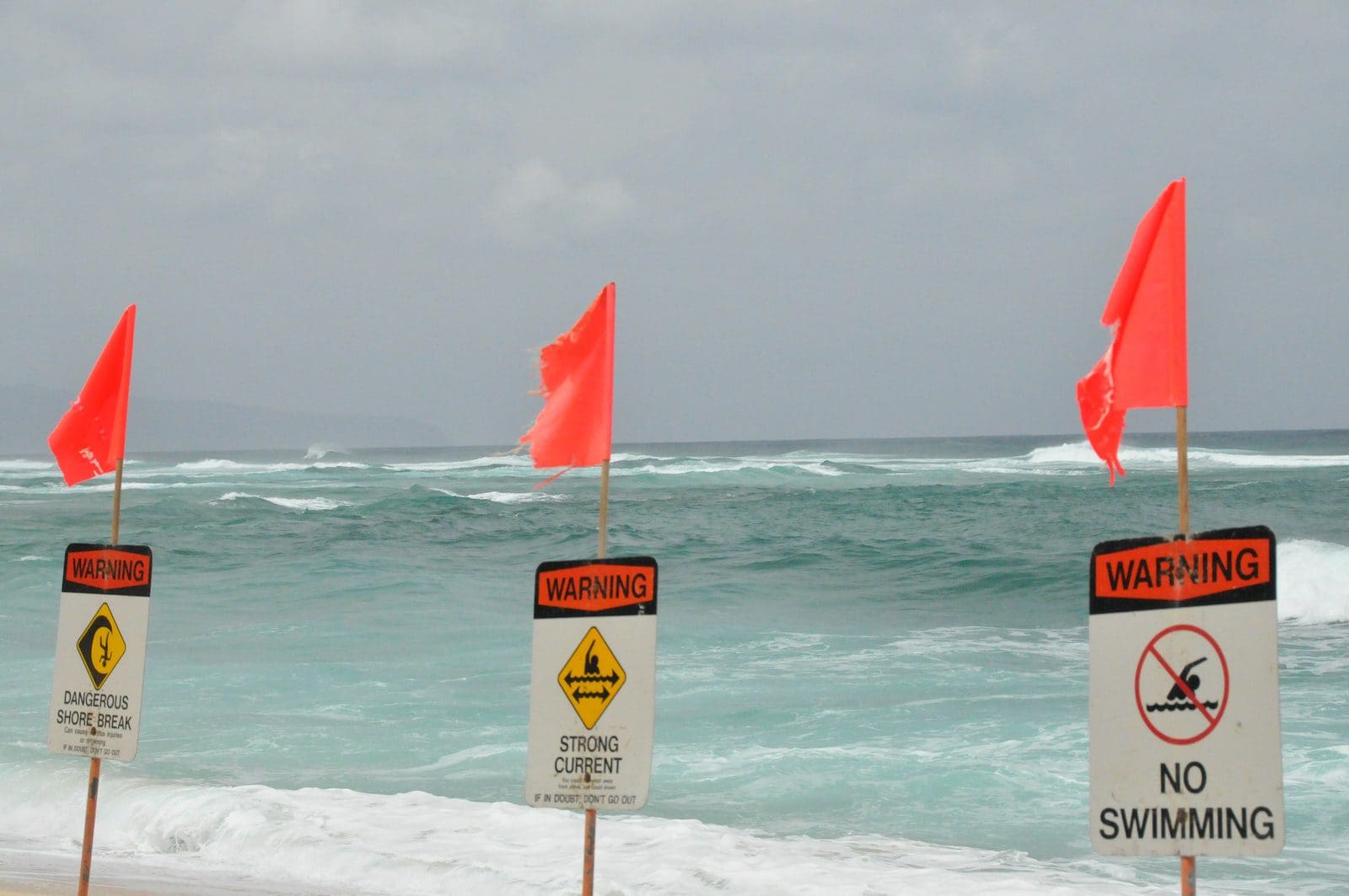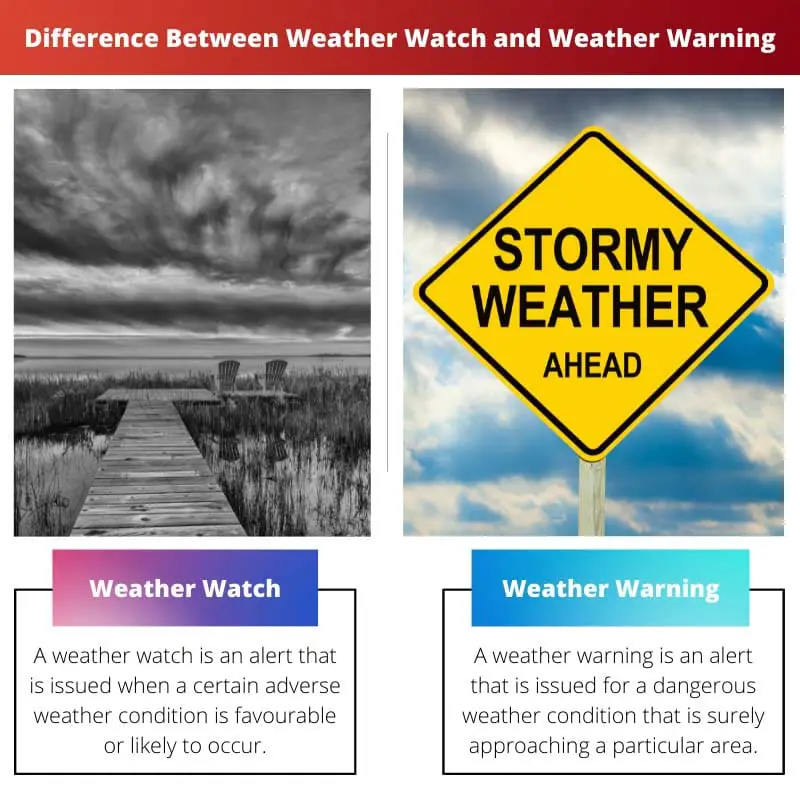Weather watch and weather warning are two terms that are commonly used throughout the year in different weather situations. People who pay attention to both can take necessary precautions for what is about to come.
This makes it very important to know the difference between the two so that one can be prepared beforehand.
Key Takeaways
- A weather watch indicates conditions are favorable for severe weather to develop.
- A weather warning means hazardous weather is imminent or already occurring.
- Staying informed about watches and warnings helps people prepare for and respond to potentially dangerous weather events.
Weather Watch vs Weather Warning
The difference between a weather watch and a weather warning is that a weather watch is issued for favourable weather conditions that may or may not actually occur in the future, whereas a weather warning is issued when severe weather conditions are spotted beforehand and are sure to affect an area in some time.

A weather watch is an alert that is issued when a certain adverse weather condition is favourable or likely to occur. This means that there are chances that it may happen however, there is no certainty.
The alert is always issued for the development of dangerous weather patterns even though there is no such condition present at that moment.
A weather warning is an alert that is issued for a dangerous weather condition that is surely approaching a particular area. This is done in order to warn people so that they can take the necessary precautions and be prepared.
Unlike the case of weather watches, the response to a weather warning should be immediate.
Comparison Table
| Parameters of Comparison | Weather Watch | Weather Warning |
|---|---|---|
| Meaning | A weather watch is an alert for a certain weather condition that is favourable to arise. | A weather warning is an alert for a weather condition that is sure to affect a particular area. |
| Broadcast | A weather watch is issued around six hours prior to the possible occurrence. | A weather warning is issued 20 minutes or an hour before the occurrence. |
| Coverage | Weather watches are issued for a large section of states or parts of a few states. | A weather warning is issued for parts of an entire country. |
| Response | A weather watch is issued so that people can ‘make a plan’. | A weather warning is issued so that people can take ‘immediate action’. |
| Danger | A weather watch does not involve as much danger as a weather warning. | A weather warning involves an implication of a severely dangerous situation. |
What is Weather Watch?
A weather watch is referred to an alert that is issued in case there may be a severe weather condition approaching. Whether or not the condition is about to occur is not certain.
However, a weather watch is still issued because if such a situation arises, people can be prepared beforehand. The message behind sending a weather watch to people is to ‘make a plan’.
Weather watches are issued around six hours prior to the actual possible happening. This gives the people enough time to assess the situation thoroughly and thereby formulate a plan of action.
The alert is issued for a few states or portions of different states. Different areas or countries have a meteorological agency that is on the lookout for any threats. This agency is also responsible for sending out alerts.
Unlike a weather warning, the danger associated with a weather watch is of a smaller degree. This is because the approaching threat may be imminent or just favourable.
However, people are always advised to take precautions regardless of what is about to come. A weather watch does not demand an immediate response from people.
However, it does ask people to have a concrete plan of action in case the weather pattern hits the area.

What is Weather Warning?
A weather warning is an alert that is issued when an adverse weather condition is about to hit a particular area. In this case, it is very certain the weather pattern will surely arise.
Such alerts are issued between twenty minutes and an hour before the actual occurrence. The alert demands an immediate response from people as it sends a message to act.
Meteorological agencies that are responsible for sending out weather warnings do so for portions of a country. The coverage area is larger as compared to weather watches. Moreover, the threat is imminent.
These kinds of alerts fall under the category of short-range weather forecasts. Destruction of property, as well as the risk of injury or death, is high, especially in the case of large patterns.
A weather warning can be issued for several different weather patterns. Some of these include tropical storms variously called hurricanes, great oceanic gales, blizzards, ice, snowstorms, floods, tornadoes, high winds and even fog.
When a weather warning is issued, people are expected to act on the plan that they have already made on the issuance of a weather watch. Therefore, a weather warning is considered to be the next step after a weather watch.

Main Differences Between Weather Watch and Weather Warning
- A weather watch is an alert for a certain weather condition that is favourable to arise, whereas a weather warning is an alert for a weather condition that is sure to affect a particular area.
- A weather watch is issued around six hours prior to the possible occurrence, whereas a weather warning is issued 20 minutes or an hour before the occurrence.
- Weather watches are issued for a large section of states or parts of a few states, whereas weather warnings are issued for larger portions of a country.
- A weather watch is issued so that people can ‘make a plan’, whereas a weather warning is issued so that people can take ‘immediate action’.
- A weather watch is not associated with much danger, whereas a weather warning is associated with a severe degree of danger.

- https://ajph.aphapublications.org/doi/abs/10.2105/AJPH.86.1.87
- https://journals.ametsoc.org/view/journals/bams/77/7/1520-0477_1996_077_1519_tphwhw_2_0_co_2.xml

Quality content! Keep up the great work!
Very well explained and easy to understand.
Excellent read, thank you!
Some great information here, thanks for sharing!
A well-rounded comparison, readers can definitely benefit from it.
Absolutely, very well done!
Great work, keep it up!
A clear, concise explanation of the two weather alerts. Well done!
Absolutely, knowledge about these alerts is crucial.
Great article! Keep them coming!
Informative piece on weather alerts. Good job!
Very well written, the comparison table was especially helpful.
An interesting read, well crafted!
This is valuable information, thanks for sharing!
The importance of both these alerts is clear. Nicely explained!
Definitely, a valuable distinction to know.
Agreed!
Very interesting piece! It’s important to know the difference between the two terms so that we can be prepared. Good work!
Agreed, very informative!
Couldn’t have said it better!